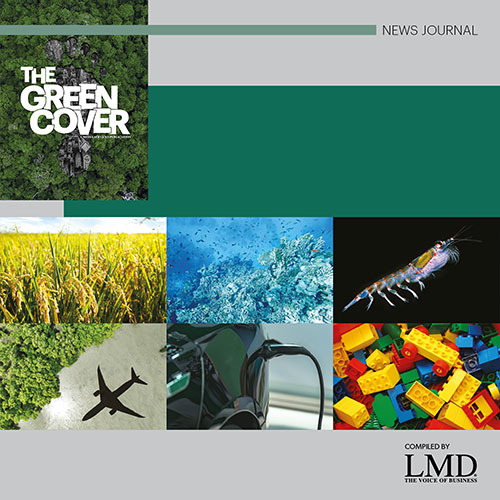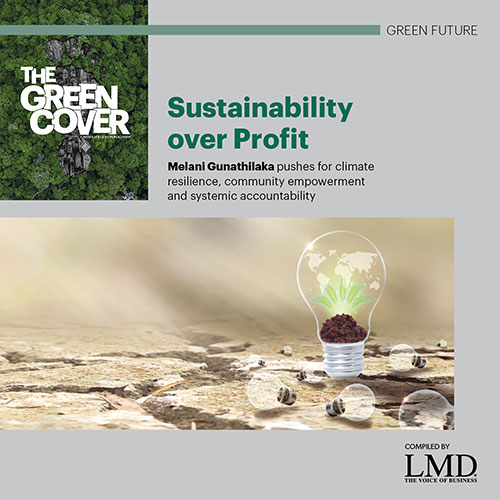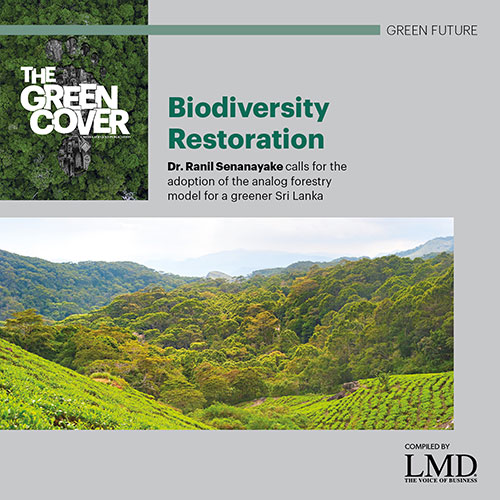GREEN FUTURE
Protecting the Ecosystem
Dr. Ravindra Kariyawasam calls for urgent action to combat climate change and ecological degradation
Sri Lanka faces economic, ecological and social crises. Dr. Ravindra Kariyawasam warns: “The primary ecological crisis today is driven by investors acquiring land for projects that exhaust natural resources.”
And within this problem, climate change poses the greatest threat. He explains: “As a small island, we face rising temperatures that disrupt forests and villages, and threaten wildlife and plant species.”
Biannual flooding in Anuradhapura, Polonnaruwa and Ratnapura has worsened due to development projects that are disrupting Sri Lanka’s ancient cascade system. Meanwhile, prolonged dry spells in these regions result in severe droughts due to insufficient water retention.
“With climate change intensifying these extremes, the country is unprepared to handle the crisis effectively,” he cautions. Deforestation exacerbates the issue while outdated data obscures the true extent of forest cover reduction.
Kariyawasam says: “According to the Forest Department Sri Lanka, forest cover stands at 26 percent – but the Ministry of Environment records it at only 16 percent.” He attributes this discrepancy to the Forest Department including coconut, banana and rubber cultivation in their calculations.
Habitat loss has also fuelled human-wildlife conflicts that are leading to rising casualties. Kariyawasam emphasises the urgent need for intervention and says: “Sri Lanka must implement a sustainable land management programme, restore water conservation systems and mitigate human-wildlife conflicts.”
He notes that effective policies and community engagement are crucial for balancing development with environmental preservation. Although Sri Lanka’s indigenous knowledge promotes sustainable environmental management this wisdom is not being passed on to new generations. “The current education system lacks proper programmes to teach youth about nature conservation,” he laments.
Kariyawasam also criticises the fragmented approach to education: “Subjects are taught in isolation – environmental science, social science and physics remain disconnected, and prevent a holistic understanding of nature and society.”
To address this, he calls for an integrated, nature-friendly education system across schools, universities and media platforms. He stresses the importance of public awareness, and advocates for social media, radio and television to spread sustainable thinking.
Despite Sri Lanka having strong environmental policies that cover chemical management, waste disposal and conservation, enforcement remains weak.
Kariyawasam adds: “Government action and public cooperation are essential because without awareness and adherence, policies remain ineffective.” Drawing from Bhutan and Nepal’s success, he urges education and community support to drive implementation.
While acknowledging social media’s role in raising awareness – especially on the human-elephant conflict, he cautions against misinformation and the distortion of casualty figures.
Dr. Ravindra Kariyawasam
Scientist
Researcher
Ministry of Environment








